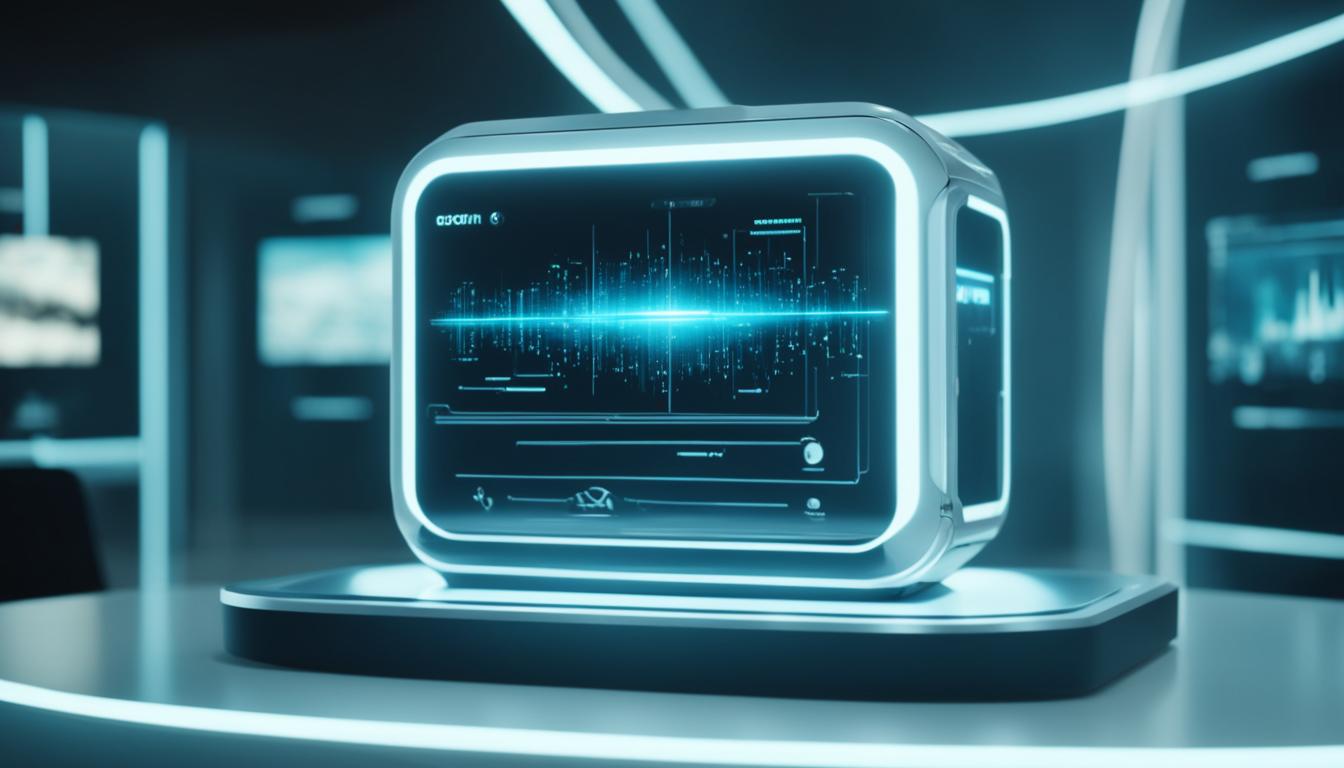Did you know that Sora, a photorealistic AI video generator, is revolutionizing the way videos are created? This groundbreaking technology developed by OpenAI has the power to produce stunning, lifelike videos that will leave you amazed.
Sora sets itself apart from other AI video generators by its remarkable level of photorealism. With Sora, creators can bring their visions to life with ease, creating videos that capture detailed scenes and characters with unparalleled realism.
But that’s not all. Unlike many other AI video generators, Sora can generate longer clips, up to one minute in length, providing even greater flexibility for creative projects.
While Sora is not yet available to the public, OpenAI has released it to a select group of creators and security experts for testing and feedback. The potential of Sora to reshape the world of video production is enormous, and it’s just the beginning of what AI can accomplish in the field of visual content creation.
Table of Contents
- 1 The Birth of Sora and Its Creative Potential
- 2 The Road Ahead for Sora and OpenAI’s Safety Precautions
- 3 FAQ
- 3.1 What is Sora?
- 3.2 How realistic are the videos generated by Sora?
- 3.3 How does Sora compare to other video creation tools?
- 3.4 What is the technology behind Sora?
- 3.5 What are the potential uses for Sora?
- 3.6 What precautions is OpenAI taking with Sora?
- 3.7 When will Sora be available to the public?
- 3.8 What are the concerns regarding the ethical implications of Sora?
- 4 Source Links
The Birth of Sora and Its Creative Potential
Sora, the remarkable video creation tool from OpenAI, is the result of blending diffusion models with transformer neural networks, taking inspiration from OpenAI’s flagship text-to-image model, DALL-E 3. This technological breakthrough has enabled Sora to handle a wide range of video types with different characteristics, making it a powerful AI video creation software for creators.
The creative potential of Sora is boundless. Filmmakers can now bring their visions to life without the need for expensive sets, as Sora’s photorealistic video rendering capabilities allow for the creation of intricate scenes that are indistinguishable from reality. Educators can leverage Sora to produce engaging content for students, enhancing their learning experience.
Sora’s AI technology has the ability to democratize video production, empowering individuals to create high-quality content that was once limited to professionals. With Sora, anyone with a creative vision and a passion for storytelling can easily craft visually stunning videos.
However, there are ethical implications to consider. Sora’s ability to generate fake, photorealistic videos raises concerns about the potential for misinformation and deceptive practices. It is crucial that the development and use of AI technology like Sora are approached responsibly, with measures in place to prevent misuse and safeguard against the spread of false information.
“Sora’s innovative technology allows creators to bring their visions to life and democratizes video production, but it also raises important ethical considerations in the era of increasingly realistic AI-generated content.”
The Creative Potential of Sora:
| Use Cases | Benefits |
|---|---|
| Filmmaking | – Craft intricate scenes without expensive sets – Create realistic characters and environments |
| Education | – Engage students with visually captivating content – Enhance learning through immersive videos |
| Marketing and Advertising | – Produce compelling and attention-grabbing visuals – Boost brand awareness with photorealistic campaigns |
| Entertainment | – Enhance storytelling with lifelike animations – Create immersive gaming experiences |
As Sora continues to evolve, it is vital for OpenAI to prioritize safety measures and collaborate with industry experts to address the challenges associated with AI-generated content. By doing so, Sora has the potential to revolutionize video creation while upholding ethical standards and promoting responsible use of AI technology.
The Road Ahead for Sora and OpenAI’s Safety Precautions
OpenAI is taking a cautious approach with the release of Sora, their innovative video generation tool. Prioritizing safety, OpenAI is conducting rigorous testing and seeking feedback from a select group of creators and security experts. While an official public release date has not been announced, OpenAI is fully committed to ensuring that when Sora becomes available, it will be both safe and beneficial.
To address concerns about misuse and inappropriate content, OpenAI has developed safety precautions for Sora. They plan to implement content filters, similar to those used in their DALL-E 3 model, to prevent the creation of violent, sexual, or hateful videos. Additionally, OpenAI intends to watermark all content generated with Sora, clearly indicating that it is AI-generated.
However, detecting AI-generated content poses challenges. OpenAI acknowledges that societal responsibility and cooperation from social media networks are crucial in identifying and properly handling such content. They are conscious of the ethical and legal implications surrounding Sora and actively working to address these concerns, prioritizing the responsible use of AI technology.
FAQ
What is Sora?
How realistic are the videos generated by Sora?
How does Sora compare to other video creation tools?
What is the technology behind Sora?
What are the potential uses for Sora?
What precautions is OpenAI taking with Sora?
When will Sora be available to the public?
What are the concerns regarding the ethical implications of Sora?
Source Links
- https://www.wired.com/story/openai-sora-generative-ai-video/
- https://www.linkedin.com/pulse/exploring-sora-openais-leap-ai-powered-video-mostafa-elashmawy-kplaf?trk=article-ssr-frontend-pulse_more-articles_related-content-card
- https://www.techrepublic.com/article/sora-generative-ai-video/
- Explore Sora: The Photorealistic AI Video Maker - February 27, 2024
- 6 Best OpenAI Sora AI Video Examples 2024 - February 27, 2024
- Create 3D Model Videos with OpenAI Sora Easily - February 26, 2024

